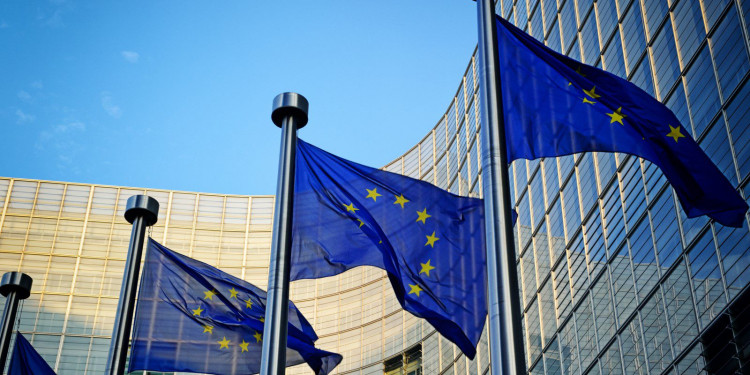
How the EU aims to standardise ESG reporting, and why critics worry about the regulation’s effectiveness and the EU’s sustainability goals
August 5, 2023
On July 31, 2023, the European Commission took a step towards fostering sustainable practices and responsible investing by adopting the revised European Sustainability Reporting Standards (ESRS).
These new reporting standards are hoped to improve how companies within the European Union (EU) report on critical issues such as climate change and various ESG-related actions.
As ESG gains momentum as a vital factor in investment decisions, the ESRS are set to play a pivotal role in harmonising and streamlining reporting practices, providing investors with essential insights into a company’s approach to environmental stewardship, social responsibility, and corporate governance matters.
Moreover, ESG reporting can help companies to improve their sustainability performance and align with the EU’s climate goals.
Further, it can increase the transparency and accountability of companies to their stakeholders and society and can facilitate the access to sustainable finance and reduce the risk of greenwashing.
The new ESRS will apply to all companies subject to the EU’s Corporate Sustainability Reporting Directive (CSRD), which requires large and listed companies to disclose information on their social and environmental impact.
In addition, the ESRS are based on the European Green Deal and the Sustainable Finance Disclosure Regulation.
The ESRS were drafted by the European Financial Reporting Advisory Group (EFRAG) and were revised this year after feedback from stakeholders and the Commission, who voiced concerns about the increasing expenses incurred due to environmental regulations.
The revisions of the ESRS, therefore, are in line with the European Commission President Ursula von der Leyen’s commitment to reduce bureaucracy across the EU executive’s operations this year.
Undeniably, the new standards are said to be less strict and more flexible than the initial draft. A step backwards in ESG compliance, some say.
A Lot of Compromises for the EU’s ESG Reporting Standards
The ESRS have been designed to address a range of ESG issues, including climate change, biodiversity and human rights, with the primary objective of providing investors with valuable sustainability information.
These standards encompass 12 distinct benchmarks, categorised into four key areas: general, environmental, social, and governance.
Notably, the Commission worked closely with the International Sustainability Standards Board (ISSB) to develop environmental standards, ensuring a high degree of compatibilitywith global reporting frameworks.
Richard Howitt, a strategic advisor on corporate responsibility and sustainability, business and human rights, said:
“The further moves in the announcement to ensure the new European standards will be more interoperable with the global approach of the [ISSB] will be broadly welcomed. This is the future for business sustainability. I expect many companies to begin the process of alignment across all the new standards, even before they are formally required to do so.”
Within the environmental domain, the ESRS prioritise critical aspects such as climate change, pollution, water and marine resources, biodiversity, ecosystems, and resource use, reflecting the pressing need for companies to address these challenges in their reporting.
The social category, on the other hand, delves into a company’s actions concerning its own workforce, workers within the value chain, impacted communities, and consumers and end-users, thus providing a comprehensive overview of the company’s social responsibility practices.
Equally crucial is the governance category, comprising a single standard that sheds light on a company’s adherence to ethical corporate practices.
It’s important to acknowledge that in an effort to align with global standards, some disclosure requirements have been shifted from mandatory to voluntary.
Here the EU can be said to have tried to strike a balance between compliance and flexibility for companies.
As Mairead McGuinness, Commissioner for Financial Services, Financial Stability and Capital Markets Union, said:
“The standards we have adopted today are ambitious and are an important tool underpinning the EU’s sustainable finance agenda. They strike the right balance between limiting the burden on reporting companies while at the same time enabling companies to show the efforts they are making to meet the green deal agenda, and accordingly have access to sustainable finance.”
Initially, the ESRS will be applicable to publicly traded and large privately held companies, with the intention of extending its scope to encompass small and medium-sized enterprises (SMEs) in subsequent phases.
Some experts view the changes made as potential setbacks for the European Union’s sustainability goals which could affect investor access to trustworthy information.
HSBC analysts have labelled the adjustments as a regression in ambition and strength. They noted, however, that they could lead to greater uniformity in global sustainability reporting.
Eurosif, an advocate for sustainable finance, expressed their disappointment in the shift away from required core disclosures.
The ESRS delegated act adopted by the Commission will be formally transmitted in the second half of August to the European Parliament and to the Council for scrutiny.
The scrutiny period runs for two months, extendable by a further two months. The European Parliament or the Council may then reject the new ESG reporting standards, but they may not amend them.
If they choose to approve the act, it will come into effect on January 1, 2024.
Subscribe to our newsletter.
This article was originally published on IMPAKTER. Read the original article.


